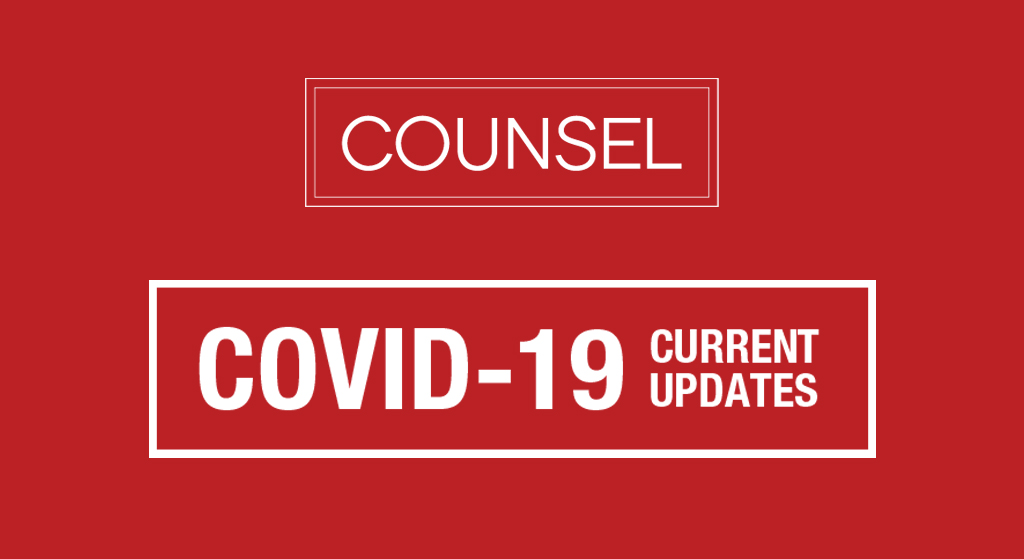As the rate of COVID-19 infection continues to rise throughout the province, the Government of Ontario announced today that it is taking decisive action by officially declaring “an emergency” and announcing the first set of orders under that declaration.
The Premier emphasized throughout his update that this is not a provincial shutdown and that the government is doing everything it can to keep supply chains open.
Ontario’s Emergency Management and Civil Protection Act gives Cabinet sweeping powers to act after the Premier declares an emergency. A full list of those powers can be found at the end of this note.
The Province this morning used those powers to order the following establishments to immediately close:
- All facilities providing indoor recreational programs;
- All public libraries;
- All private schools as defined in the Education Act;
- All licensed child care centres;
- All bars and restaurants, except to the extent that such facilities provide takeout food and delivery;
- All theatres including those offering live performance of music, dance, and other art forms, as well as cinemas that show movies; and,
- Concert venues.
In addition, all public gatherings of more than 50 people, including at places of worship and public events like parades, are now prohibited.
These orders will remain in place until March 31, 2020, at which point they will be reassessed and considered for extension, unless this order is terminated earlier.
The Premier also announced the first stage of an emergency relief package, an initial investment of $300M ($200M of which came from the federal government) for immediate measures, including: opening 500 post acute care beds, opening 25 additional COVID-19 assessment centres, 24 hour screening services for Long Term Care facilities and funding for doctors and services in indigenous and rural communities.
The Ontario legislature will sit this Thursday, March 19, 2020 to introduce and pass legislation announced late last week to protect employees needing to stay home in quarantine and self-isolation as a result of the COVID-19 outbreak, along with other measures including no longer requiring a doctor’s note to stay home.
As always, please let us know if you have any questions or require support during this unfolding situation as businesses and organizations adjust. Counsel staff are now working virtually with full functionality.
Excerpts from Ontario’s Emergency Management and Civil Protection Act
Emergency orders
(4) In accordance with subsection (2) and subject to the limitations in subsection (3), the Lieutenant Governor in Council may make orders in respect of the following:
- Implementing any emergency plans formulated under section 3, 6, 8 or 8.1.
- Regulating or prohibiting travel or movement to, from or within any specified area.
- Evacuating individuals and animals and removing personal property from any specified area and making arrangements for the adequate care and protection of individuals and property.
- Establishing facilities for the care, welfare, safety and shelter of individuals, including emergency shelters and hospitals.
- Closing any place, whether public or private, including any business, office, school, hospital or other establishment or institution.
- To prevent, respond to or alleviate the effects of the emergency, constructing works, restoring necessary facilities and appropriating, using, destroying, removing or disposing of property.
- Collecting, transporting, storing, processing and disposing of any type of waste.
- Authorizing facilities, including electrical generating facilities, to operate as is necessary to respond to or alleviate the effects of the emergency.
- Using any necessary goods, services and resources within any part of Ontario, distributing, and making available necessary goods, services and resources and establishing centres for their distribution.
- Procuring necessary goods, services and resources.
- Fixing prices for necessary goods, services and resources and prohibiting charging unconscionable prices in respect of necessary goods, services and resources.
- Authorizing, but not requiring, any person, or any person of a class of persons, to render services of a type that that person, or a person of that class, is reasonably qualified to provide.
- Subject to subsection (7), requiring that any person collect, use or disclose information that in the opinion of the Lieutenant Governor in Council may be necessary in order to prevent, respond to or alleviate the effects of the emergency.
- Consistent with the powers authorized in this subsection, taking such other actions or implementing such other measures as the Lieutenant Governor in Council considers necessary in order to prevent, respond to or alleviate the effects of the emergency. 2006, c. 13, s. 1 (4).
Powers of Premier, municipal powers
(2) If an order is made under section 7.0.1 and the emergency area or any part of it is within the jurisdiction of a municipality, the Premier, where he or she considers it necessary, may by order made under this section,
(a) direct and control the administration, facilities and equipment of the municipality in the emergency area, and, without restricting the generality of the foregoing, the exercise by the municipality of its powers and duties in the emergency area, whether under an emergency plan or otherwise, is subject to the direction and control of the Premier; and
(b) require any municipality to provide such assistance as he or she considers necessary to an emergency area or any part of the emergency area that is not within the jurisdiction of the municipality and direct and control the provision of such assistance. 2006, c. 13, s. 1 (4).

